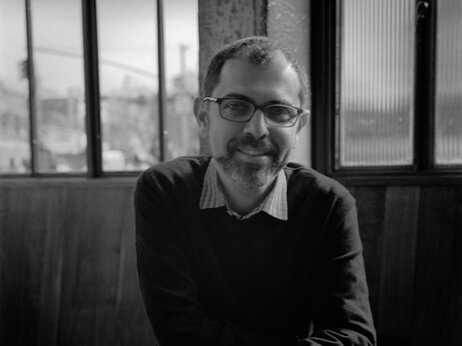by Elissa Schappell - August 17, 2013NPR Books
In the good old, bad old days of book publishing, screaming matches happened in public, not online; the boss' philandering was an open secret never leaked to the press, and authors actually had to turn in their manuscripts in order to get money out of their publisher.
It is a testament to Boris Kachka that "Hothouse: The Art of Survival and the Survival of Art at America's Most Celebrated Publishing House, Farrar, Straus & Giroux" is as engrossing as a biography of any major cultural icon.
Fresh out of the Navy, Roger Straus, a pugnacious, aristocratic New York Jew, known for his ascots and acid tongue, enlists the support of veteran editor John Farrar in starting a publishing house. They soon bring aboard Robert Giroux, a proper, working class, closeted New Jersey Catholic, who becomes, in his role as FSG's editor-in-chief, the company's answer to Maxwell Perkins, and the perfect foil for Straus.
FSG brought together some of the biggest literary rock stars of the post-war publishing world, and New York magazine contributing editor Kachka gives us the literary equivalents of Led Zeppelin-style trashed hotel room stories. Here is Jack Kerouac, hopped up on what was probably speed, unrolling the On the Road scroll in front of the stone-faced Giroux (who Kachka suggests had a crush on Jack). Here is Straus making Isaac Bashevis Singer's wife ride in coach as they all fly to Stockholm to accept the Nobel. Here is Giroux, earlier in his career, furious and crestfallen at being forced to go back on his promise to J.D. Salinger to buy Catcher in the Rye. Here is Straus suggesting angrily in an interview that agent Andrew Wylie, aka "The Jackal," had "seduced" Phillip Roth away from him
.
Like the host of the most exclusive book party in the world, Kachka does an excellent job of pointing out the most important players in the room at any time in FSG's history. FSG made Jewish writers such as Bernard Malamud, Philip Roth and Singer stars; propelled Southern writers such as Flannery O'Connor and Walker Percy; added fuel to the fire of "El Boom," the wave of excitement over Latin American literature that rocketed Carlos Fuentes, Mario Vargas Llosa and Pablo Neruda onto the scene; and set fire to American letters with the New Journalism and its torchbearers Joan Didion and Tom Wolfe.

Mia Tran
More
It is a testament to Boris Kachka that "Hothouse: The Art of Survival and the Survival of Art at America's Most Celebrated Publishing House, Farrar, Straus & Giroux" is as engrossing as a biography of any major cultural icon.
Fresh out of the Navy, Roger Straus, a pugnacious, aristocratic New York Jew, known for his ascots and acid tongue, enlists the support of veteran editor John Farrar in starting a publishing house. They soon bring aboard Robert Giroux, a proper, working class, closeted New Jersey Catholic, who becomes, in his role as FSG's editor-in-chief, the company's answer to Maxwell Perkins, and the perfect foil for Straus.
FSG brought together some of the biggest literary rock stars of the post-war publishing world, and New York magazine contributing editor Kachka gives us the literary equivalents of Led Zeppelin-style trashed hotel room stories. Here is Jack Kerouac, hopped up on what was probably speed, unrolling the On the Road scroll in front of the stone-faced Giroux (who Kachka suggests had a crush on Jack). Here is Straus making Isaac Bashevis Singer's wife ride in coach as they all fly to Stockholm to accept the Nobel. Here is Giroux, earlier in his career, furious and crestfallen at being forced to go back on his promise to J.D. Salinger to buy Catcher in the Rye. Here is Straus suggesting angrily in an interview that agent Andrew Wylie, aka "The Jackal," had "seduced" Phillip Roth away from him
.
Like the host of the most exclusive book party in the world, Kachka does an excellent job of pointing out the most important players in the room at any time in FSG's history. FSG made Jewish writers such as Bernard Malamud, Philip Roth and Singer stars; propelled Southern writers such as Flannery O'Connor and Walker Percy; added fuel to the fire of "El Boom," the wave of excitement over Latin American literature that rocketed Carlos Fuentes, Mario Vargas Llosa and Pablo Neruda onto the scene; and set fire to American letters with the New Journalism and its torchbearers Joan Didion and Tom Wolfe.

Boris Kachka has written for The New York Times, Conde Nast Traveler, GQ and Elle.
Unlike Random House or Simon & Schuster, what Straus would have dismissively called "commercial publishers," FSG insisted on publishing only books of the greatest literary merit, damn the remainder bins. This premium on prestige was what mattered at FSG; the company cared for nothing as sordid as profits. And from 1978 to 1995, "FSG published the work of ten out of the eighteen [Nobel Prize] winners."Pointing out the players isn't enough, though, so thankfully Kachka provides enough heat to earn that "Hothouse" title, reflecting the climate that existed at FSG in the '60s and '70s, what Straus' wife Dorothea affectionately labeled "a sexual sewer." Kachka reports that it wasn't uncommon for Straus to grab a nooner with any of a number of female staffers. "The rumor," Kachka writes, "went that the man who delivered the clean towels to the office on Fridays ... also provided Roger with fresh sheets."

No comments:
Post a Comment